Pharmaceutical USA, making the population sicker
More than 10% of Americans over the age of 12 use antidepressants which are among the most frequently used medications in the United States.
A recent study shows how antidepressants help bacteria resist antibiotics.
Scientific data shows that in 2019 antimicrobial resistance killed more people than HIV/AIDS or malaria.
The Fentanyl drug crisis is on the rise in the United States. Fentanyl is a major cause of overdoses, an epidemic which killed close to 110,000 people in 2021.
It seems the drugs that are meant to cure people are making the population sicker.
The United States Center for Disease Control and Prevention (CDC) announced that at the end of May 2022 close to 40% of American adults had experienced symptoms of depression and anxiety during the previous month, a quarter of whom received antidepressants or other psychiatric drugs.
The New York Times also reported that between 2017 and 2021 the number of American teenagers taking antidepressants rose by 41%.
Most adults that feel depressed do not take antidepressants, but the number that do is still staggering.
More than 10% of Americans aged 12 and above take antidepressants, whereas in 1990, less than 3% of adults had taken these drugs.
I think in this country, certainly stigma has really changed in the last 20 years, and certainly with our younger population, they're talking about anxiety and depression a lot. Whereas people in my generation and older didn't talk about it so much.
Being unable to connect with large groups of people in the way that you know humans are used to. It was really hard just to wake up you know, going, being asleep was my favorite thing about the day because I didn't have to be awake and be thinking and wanting to be with people but not being able to.
Eva Zarpas, Anxiety and Depression Sufferer
The rise of the use of antidepressants continues unabated. Nature magazine recently published a study stating that antidepressants are causing drug resistance, resistance towards antibiotics in particular.
Professor Jianhua Guo, the author of this study working at the Australian Centre for Water and Environmental biotechnology at the University of Queensland in Brisbane, became interested in the possible contribution of non antibiotic drugs to antibiotic resistance in 2014.
Why do so many Americans take antidepressants?
I think the first the first thing to look at is that these figures parallel the rise of wealth inequality in America, and also the decline in living standards of many, many, Americans, specifically, lower income Americans who have really not seen their wages, and their work compensation, increase substantially for over 30 years.
It's only just in this very last period from COVID that there's been any increase at all, but that's still less than inflation. That's the major cause.
Digby James Wren, Chief News Commentator, CGTN TV, Phnom Penh
Jianhua Guo reported that even though antidepressants are a completely different class of drugs, they are driving bacteria to develop resistance against antibiotics.
He adds that even after a few days of exposure, bacteria developed resistance not only against one, but multiple antibiotics.
This would mean that antidepressants may help the rise of superbugs in the environment or the human body
Without changing people's habits and developing new drugs quickly, drug resistance is going to pose a huge threat to human health, and it's going to do so in our lifetime.
The findings of this new study are extremely important and alarming since antibiotic resistance is a significant public health threat throughout the world.
It is estimated that 1.2 million people died as a direct result of antibiotic resistance in 2019. And the number is only expected to rise. A global survey shows that antimicrobial resistance took the lives of more people in 2019 than HIV AIDS or malaria did.
What do the findings of this study mean for the United States?
When it comes to precise interaction of drugs, antidepressants, or antibiotics and other kinds of treatment drugs, for infections and so forth, the issue and the precise mechanisms that can take place really have to be studied by expert bio chemical, medical chemical researchers. And there are interactions.
But secondly, you have a lot of co-conditions among Americans, concerning their health if they are taking antidepressants or antibiotics. You have a very high rate of obesity, people are fat, they are depressed, that strains the organs in the body, and it creates a disposition for more illnesses of all kinds; respiratory, problems in the gastro and other systems.
So there is not automatically a simple relationship of antibiotics and antidepressants, but you've created the conditions for very bad interactions.
Marcia Baker, Editor, Executive Intelligence Review, Washington
Interestingly, with the harmful effects of antidepressants on the environment and humans now coming to light, another study has shown that antidepressants and psychiatric medications over time may not be doing anything to improve the overall quality of life of the patient.
In a study on millions of Americans, after two years, those taking antidepressants showed no improvement in either their physical or mental quality of life.
For decades we thought that the primary pathology, the primary cause of depression, was some abnormality in these neurotransmitters, specifically, serotonin or norepinephrine.
However, norepinephrine and serotonin did not seem to be able to account for the symptoms of depression in people who had major depression. Instead, the chemical messengers between the nerve cells in the higher centers of the brain, involved in regulating mood and emotion, which include glutamate and GABA were possibilities as alternative causes for the symptoms of depression.
Dr. David Katz, the founding director of the Prevention Research Center at Yale University, and President of the Preventive Medicine Advocacy Organization said that he was not surprised by the findings of the study, adding that antidepressant drugs tend to be only nominally effective, even in the short term.
He also added that much of the impact of the drugs is because of their placebo effect.
I think the overuse of antibiotics, and antidepressants, has been documented for a very long time and we all know that it reduces people's immunity, that's the very first thing.
It also it goes into, through animals, through the food supply chain, and it enters back into human bodies in that way. And of course, then what happens is people who are eating this kind of low quality food are then also, you know, taking drugs, antidepressants and other kinds of, opioids, for example, that is causing them to get other diseases.
And for example, there's a study just released, not very long ago, a couple of weeks ago, about the extraordinary rise of syphilis in, I think it was Mississippi, one of the states in America. An extraordinary rise in syphilis and a lot of this has got to do with antibiotics.
It also has to do with the fact that hospitals are still very, very overcrowded in America and access to getting testing and prenatal care and things like that are quite difficult for many Americans, you know, only 16 Americans are fully covered by Medicare, or maybe a Medicare aid and that leaves a very, very large proportion of people in America without a health safety net.
Digby James Wren, Chief News Commentator, CGTN TV, Phnom Penh
In the 1970s, the American Psychiatric Association, the APA fearing it could lose its legitimacy, started to present psychiatrists as medical doctors who are treating patients with diseases.
This “rebranding” also called for a different definition for depression whereby depression would be known as a disease that would require medication for treatment.
Not surprisingly, pharmaceutical companies jumped aboard campaigning in support of so called depression awareness so as to make the billions of dollars they are making today off psychiatric drugs.
What's called Big Pharma, the very large famous pharmaceutical, chemical, medicine, producing houses like Merck, AstraZeneca many other kinds of companies.
They have been allowed, through deregulation, for 30 or 40 years to just play the market and produce mood drugs, for anti depressants and other things, and not have the support and direction and ordering by the national government of what kind of research and what kind of manufacturing of medications would be in the public interest.
Because instead of making profits, which is alright, it's fair enough, by producing reliable and good drugs, the companies have switched to producing opiates of all kinds, and even raising certain kinds of medicines and mood drugs abroad from the United States.
And this should, instead they should be ordered, induced and pressured to produce the vaccines and the medications both for the US and wherever needed internationally. This is a matter of the public welfare.
Marcia Baker, Editor, Executive Intelligence Review, Washington
There is little evidence to prove that antidepressants are actually helping psychiatric patients. While there is an abundance of evidence that they are, in fact, doing harm with six out of seven psychiatric patients reporting that they experienced drug side effects without any benefits.
The most common side effect may be sexual dysfunction, which at times lasts long after the patients stop taking the drugs. This side effect can cause problems that might make the patient feel depressed as a result.
What is being done to limit the use of antidepressants and antibiotics that cause drug resistance?
You know, the decent health experts and doctors and medical specialists do recommend do not misuse and widely use antibiotics [sic].
It's better to have your farm animals, as well as your population, be in the best circumstances to be able to naturally resist microbes, viruses and bacteria and the best way to ensure that is for high technology family scale farms.
So the farmer can make the decision. Does an animal need an antibiotic, but only get it under certain circumstances.
Marcia Baker, Editor, Executive Intelligence Review, Washington
Everyday millions of Americans suffering from psychiatric problems and depression turn to antidepressants or other drugs to try and relieve their suffering.
The COVID-19 pandemic, its effect on the economy and peoples lifestyles, elevated depression and drug abuse. Many Americans coping with psychological disorders or pain are turning to other drugs in the hope of finding relief.
One such drug is Fentanyl, a very dangerous drug which can be purchased by prescription or illegally on the black market.
Well, the problem is, the existent problem is already very large and there's very many deaths and what we've seen is that the United States government has made efforts to blame everybody else, you know, they've said that Mexico is you know, the source and the cause of the drug problem.
They've said that all of these drugs are coming from China and China should do more about these drug problems that the, you know, opium and other drugs came from Afghanistan, and they should do more about that. So this is, of course, is obfuscation I mean this is not the real cause.
The real cause is demand and that demand has been caused because people do not have the education, do not have the health standards that are required and needed, that Big Pharma is making profits at the expense of the health of the nation. Even though they, you know, obviously say that they're helping by the development of their drugs but actually they are you know, they are profit making and they don't really think about this and there's very few controls on them.
Mental health (problems) of course, also is on the rise in the United States. And look, all of this equates to the way that the United States is being run. It subjugates its trade policy and its domestic policies to foreign policy.
It spends enormous amounts of money that it has to borrow because of the power of the dollar, to fund all of this, and that in itself is decreasing the purchasing power of the dollar and undermining the salaries and wages and services, health, education, infrastructure, in the country and I think you know, that's going to continue and wealth inequality in America is the highest anywhere.
And I don't see any end to this problem. I don't think that the government is making any true effort to realize an end to this problem. They're just passing the buck and blaming everybody else.
Digby James Wren, Chief News Commentator, CGTN TV, Phnom Penh
Fentanyl is a strong opioid drug that is often prescribed when other sedative or pain relief medication is not strong enough to relieve the patient's pain.
Because Fentanyl is 50 to 100 times more potent than morphine, its primary clinical utility is in pain management for cancer patients and those recovering from painful surgical operations.[8]
Fentanyl, however, is found to be addictive and some experts believe that the drug itself makes it extremely difficult to start addiction treatment.
Fentanyl is the main cause of drug overdoses having taken the lives of nearly 108,000 Americans in 2021.
There is a plague of drug use in the United States. In fact it's so bad that the leading cause of death of Americans, between the ages of 18 years old and 45 years old, is drugs; directly through overdose or otherwise through indirect debilitation and sickening of their bodies.
So, the widespread prescription or black market use of synthetic opioids like fentanyl and others has reached extreme proportions. And in addition, sometimes there are other things that contribute to the likelihood of death connected to it.
There's a substance that's used in veterinary for animals as a tranquilizer, and that's added into Fentanyl. And it's been very bad in Philadelphia and New Jersey. So there are many stories about this. But overall, this is an epidemic of drug use, resulting in the actual increased death rate in the United States.
Marcia Baker, Editor, Executive Intelligence Review, Washington
The drug epidemic in the United States is alarming. The Substance Abuse and Mental Health Services Administration's 2021 National Survey on Drug Use and Health discovered that 16.5% of the American population, which is close to 47 million people, aged 12 and above, had a substance use disorder in the past year. 24 million individuals were classified as having a drug use disorder.
How does prescribing Fentanyl correlate with the high number of drug overdose deaths in the US?
Fentanyl is a big problem. So the opioid addiction in America and not just in America but other advanced economies, but America has the worst outbreak of this.
As I said before, it's very much related to lower living standards, low salaries and the depopulation of country areas. You see a lot of this problem with opioids is not only in big cities where you might think it's going to happen in big cities, but it's actually happening in poorer rural areas, as well as semi rural areas, where there's a big lack of cultural and other kinds of health services, educational services, those sorts of things.
And this mostly affects people with lower education standards, and that's quite a few people these days in America because it's so expensive to go to university and the worst affected group are those that have not finished high school.
And in America, that's surprising, but that number is very, very big. But yes, the side effects of this, of course are, you know, the violence or the drug crime, you know, rising prison populations, all sorts of problems like that.
And it's mostly, of course, the same group of people. This is lower income groups with lower education levels.
Digby James Wren, Chief News Commentator, CGTN TV, Phnom Penh
Following the surge of opioid addiction and drug overdoses, the Biden administration has been trying to curb the crisis by reforming and liberalizing federal rules for treating opioid addiction.
This would include relaxing the prescription of drugs such as methadone, which is unavailable to Americans who do not have access to special federally approved Opioid Treatment clinics.
Regular physicians are not allowed to prescribe the medication, even though they can prescribe opioids.
What should be done to stop the drug epidemic in the US?
If the United States, on the positive side, stop the geopolitical kind of warfare orientation and instead moved for economic development and started rebuilding railroads, collaborating in the Americas, and on water projects with Canada and Mexico, where you had a whole prospect for the population of good jobs and a future for families.
You could, you could push down the dependency on drugs and in addition, we need a cultural shift to go with this.
That is, there has been a very bad counterculture from Hollywood and from London and elsewhere for decades for depraved music, the drug culture that it's clever to take drugs and for bred in circuses like in the, in the days of the decline of Rome, where everyone is completely oblivious by being involved in sports, which on their own is a fine thing, physical activity, but people's lives have been so destroyed by the lack of productive employment and a future and hope.
If this is done, things could be turned around.
Marcia Baker, Editor, Executive Intelligence Review, Washington
It would not come as a surprise if Big Pharma were also behind the push to relax rules and regulations for treating opioid addiction.
Some might argue that treating a drug addiction with another drug would defeat object of the exercise. Methadone itself is an opioid that might cause physical dependence and addiction.
So whether it is patients taking opioids to relieve the pain or feed their addiction or if they intend to cure their addiction, they would still be filling the coffers of Big Pharma. That is what is called a win-win situation for pharmaceutical companies.
Big Pharma is a very big problem, because it's a kind of a strange cycle. Isn't it? These drug companies promote to doctors the prescription of their drugs. This has been famously documented everywhere. You know, doctors going on holidays to Las Vegas and so forth paid by drug companies and so there's sort of kickbacks, if you like, for doctors that prescribe more of those drugs, and so they're very freely promoted and prescribed.
And the government keeps widening that window to allow more drugs of these kinds, opioids and antidepressants and so forth, to be prescribed.
And then they prescribe mostly to the people that, I'm not going to say that people don't need them, but I'm going to say the two groups who, as we've talked about before, lower income, lower education, they don't really understand medical and health situations and the doctors are obviously promoting these drugs to them.
And the health companies of course make a lot of money out of this.
And we know that during COVID, for example, and the mRNA type COVID vaccines, it was the US government that funded the research and development of these drugs, but it's the pharmaceutical companies that are keeping the profits they're not paying back the government and taxpayers that money and so this is also the problem related to you know, antibiotics, in farms and in animals.
Also with opioids and antidepressants, it's a kind of a vicious circle there. The pharmaceutical companies make a lot of money, the doctors then promote, you know, promote the use of these drugs, and then the people that use them have more health problems and need to go back to their doctors.
And look, this is a vicious cycle and Big Pharma needs to be controlled more. But I think in America that's going to be very difficult; the rise of Big Pharma is a real problem, an economic and social problem..
Digby James Wren, Chief News Commentator, CGTN TV, Phnom Penh
Antidepressants and other forms of drugs are used frequently in the United States. Health experts are concerned over the widespread use of these drugs as research has revealed that, not only are they of little or no benefit to the user, they harm others and the environment by causing drug resistance and the creation of superbugs.
Pharmaceutical companies, however, are only concerned about their profits. So with the doctors and politicians all benefiting from the sale of drugs, there is little hope of ever controlling "Big Pharma".
Israeli tank fires on Lebanese army during joint UN mission in south Lebanon: Report
Iran certain to deliver decisive response to Trump’s threats: Senior commander
Netanyahu skipped Davos amid arrest fears: Reports
VIDEO | West’s support for terror in Iran
VIDEO | Press TV's news headlines
More Europeans see Trump as 'enemy' than 'friend': Survey
Ukraine war talks begin in UAE as Russia repeats Donbas demand
Iran slams UNHRC session as illegitimate, says no submission to foreign pressure


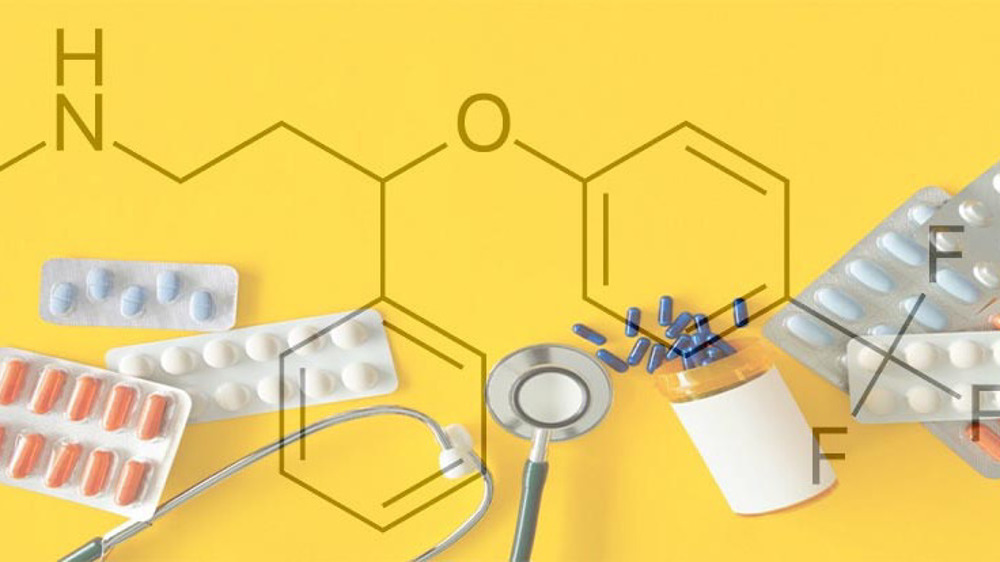
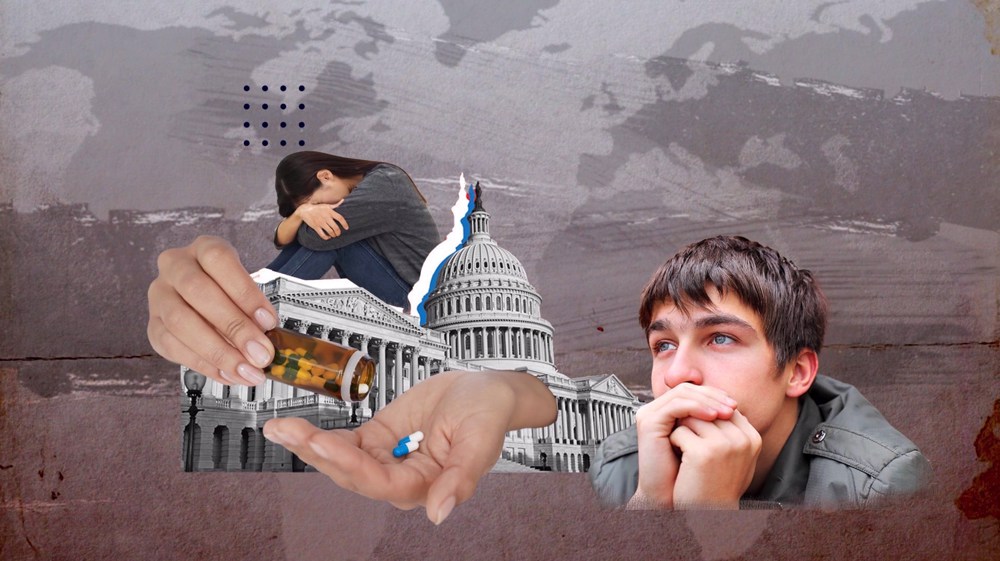

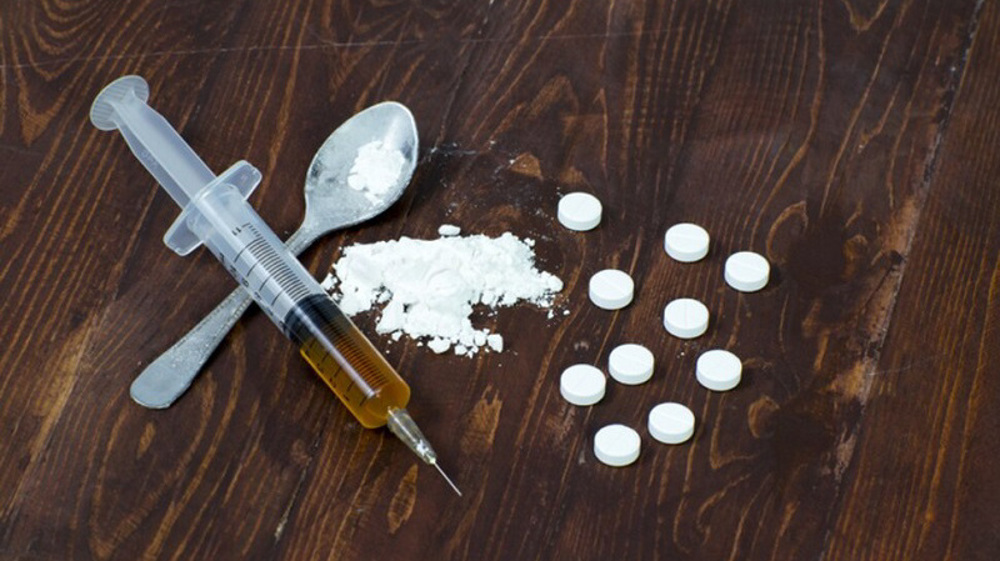

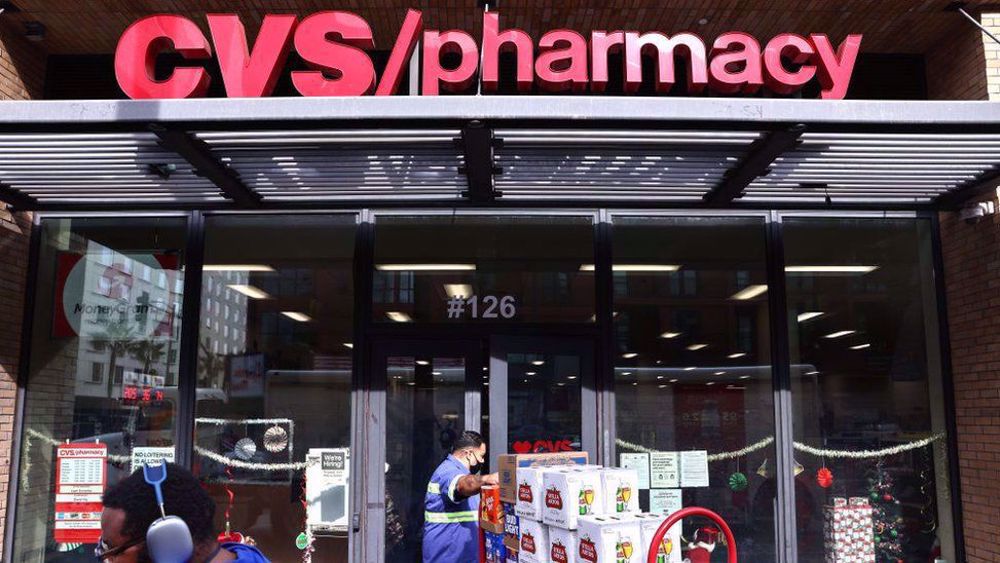
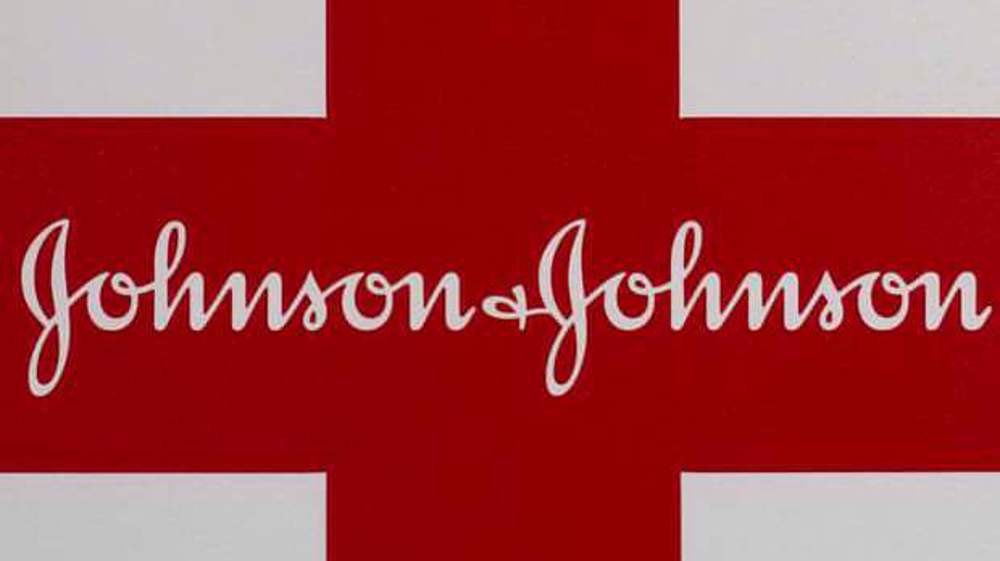
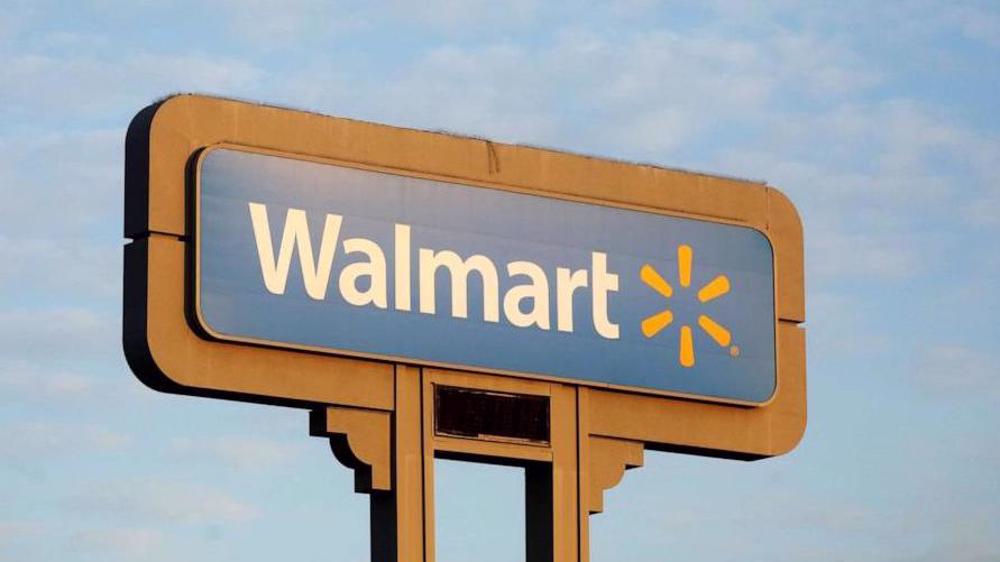
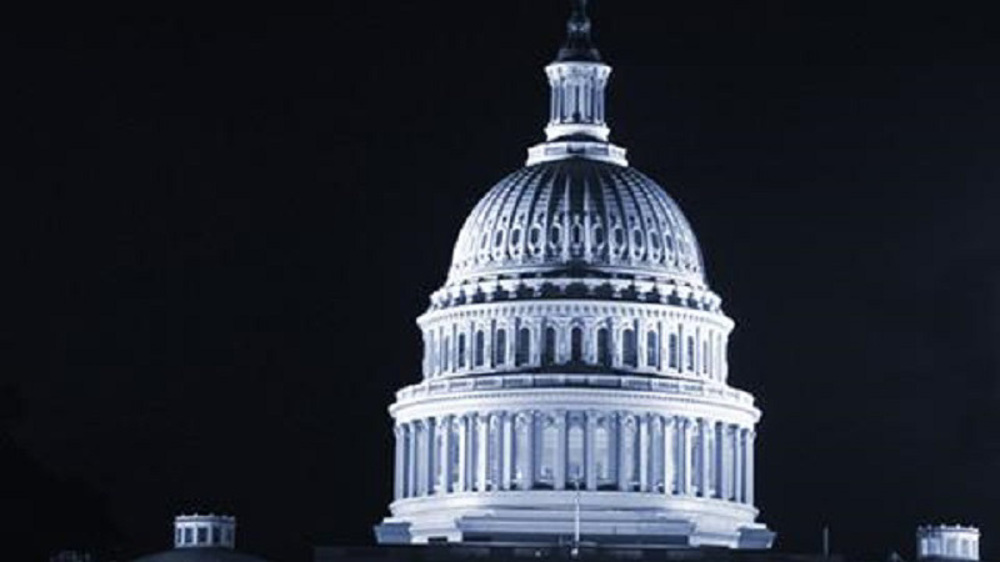
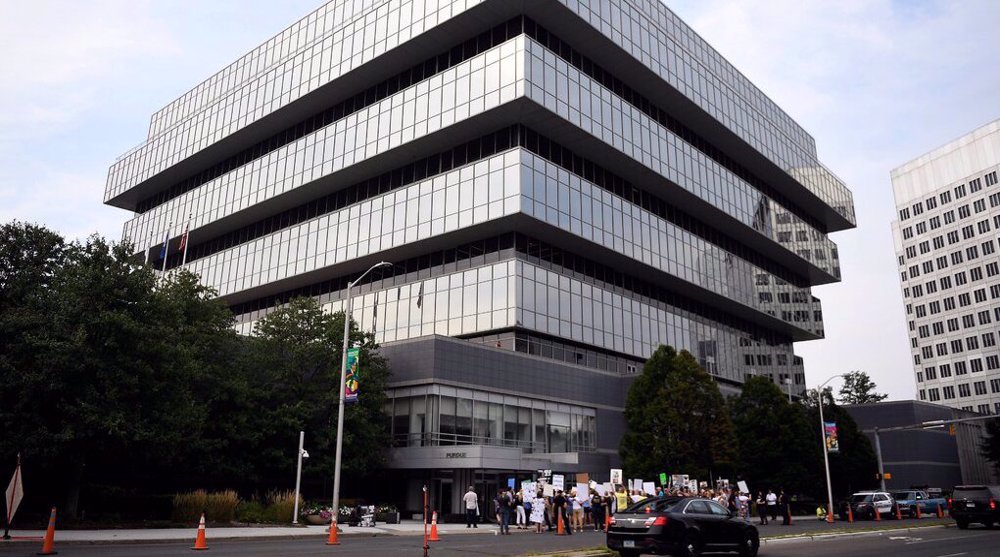
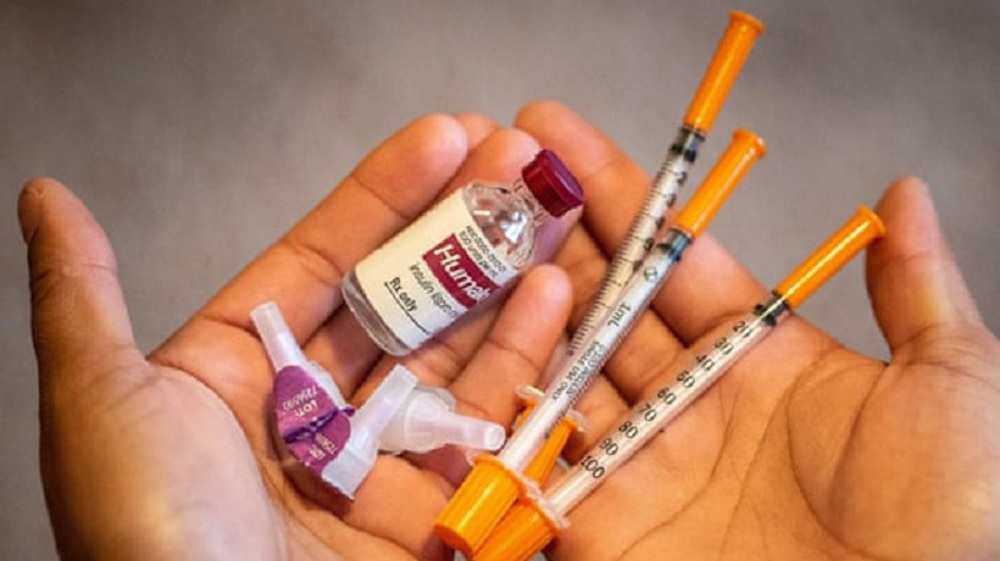







 This makes it easy to access the Press TV website
This makes it easy to access the Press TV website